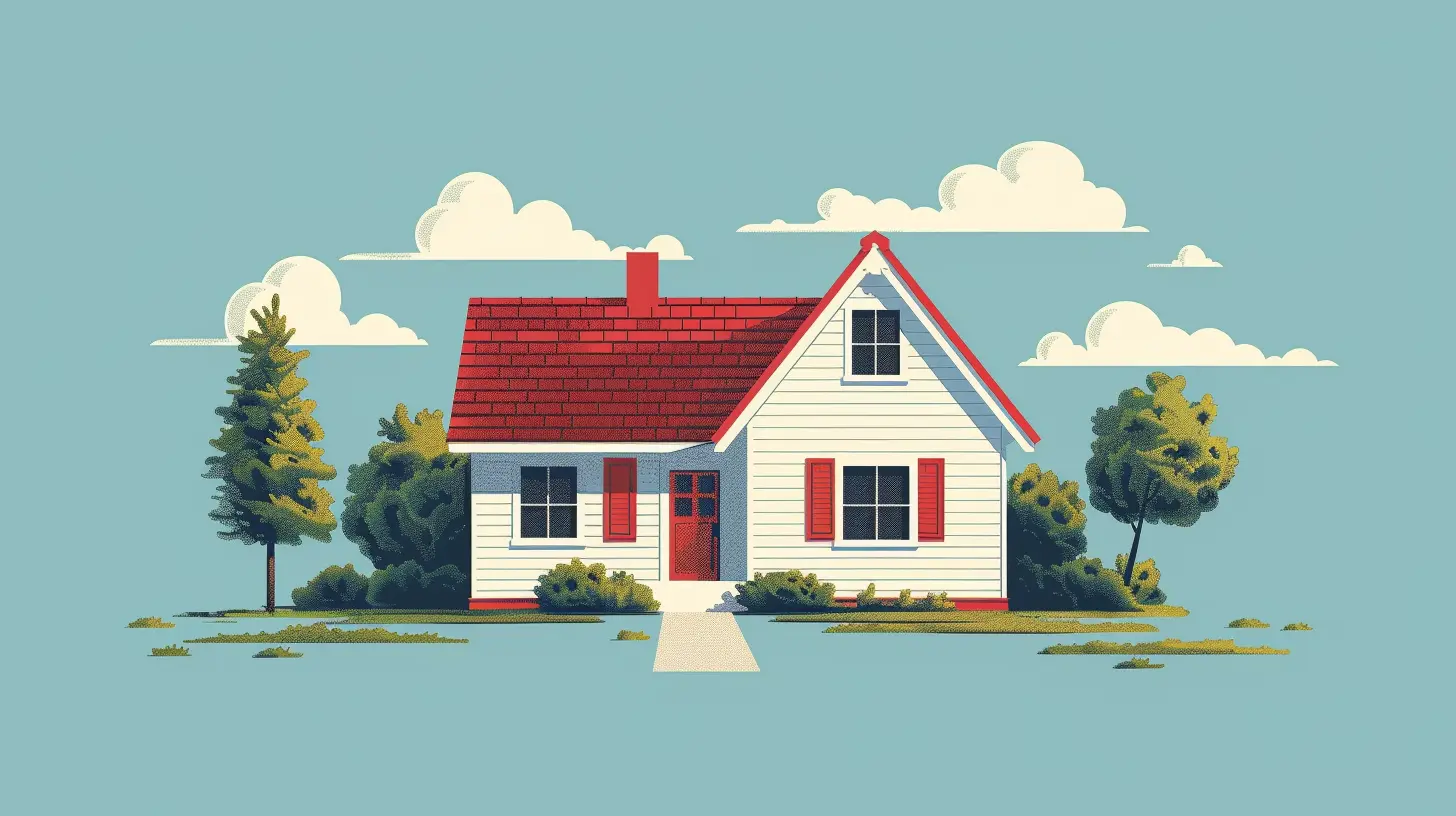15 January 2025
If you’ve been daydreaming about turning the key to your very own home but feel like your finances might be holding you back, you’re not alone. For many, navigating the world of home loans feels a bit like trying to solve a Rubik’s Cube blindfolded—complicated and frustrating. But what if I told you there's a loan program designed specifically for folks who might not have perfect credit or a massive down payment saved up? Enter the FHA loan.
Now, before you dive head-first, let’s unpack everything you need to know about FHA loans, so you can figure out if it’s the home-buying hero you’ve been waiting for.
What Is an FHA Loan?
First things first—what exactly is an FHA loan? FHA stands for Federal Housing Administration, and these loans are backed by the government. In plain English, that means they’re designed to make homeownership more accessible. The FHA doesn’t lend you the money directly (that’s where private lenders come in), but they do insure the loan. Think of it like having a cosigner vouching for you, which makes lenders more willing to approve a loan for someone with a less-than-perfect financial history.What sets FHA loans apart is their flexibility. They’re especially popular with first-time homebuyers, but they’re not limited to newbies. If you’re looking to buy a primary residence (not a vacation home or investment property), this might just be the golden ticket you need.
Key Features of FHA Loans
Let’s break it down into bite-sized pieces. Here are the standout features of FHA loans that you should know about:1. Low Down Payment
One of the biggest perks of an FHA loan is the low down payment requirement—just 3.5% of the purchase price if you have a credit score of 580 or higher. Compare that to the 10%–20% down payment that many conventional loans require, and you can see why FHA loans are a breath of fresh air.2. Lenient Credit Requirements
Got a few dings on your credit report? No sweat. FHA loans are more forgiving than conventional loans when it comes to credit scores. While a score of 580 or above is ideal, you might still qualify with a score as low as 500—though you’ll need to put down a bigger deposit (10%).3. Assumable Loans
Here’s a fun fact: FHA loans are assumable. That means if you sell your home down the road, the buyer can take over your FHA loan (assuming they qualify). This can be a major selling point if interest rates are higher in the future.4. Lower Interest Rates
Lenders tend to offer lower interest rates on FHA loans because they’re insured by the government. That’s good news for your wallet over the life of the loan.5. Gifted Down Payments
Don’t have the cash for a down payment? No problem! With FHA loans, your down payment can come from gifted funds, such as money from a family member or a grant.
The Pros and Cons of FHA Loans
No loan is perfect, and FHA loans are no exception. Let’s weigh the good and the not-so-good.The Pros
- Easier to Qualify: Lower credit score requirements and a smaller down payment make FHA loans accessible to more people.- Flexible Debt-to-Income Ratios: If your monthly debts (like credit card payments, student loans, etc.) are on the higher side, you might still qualify.
- Great for First-Time Buyers: If you’re feeling overwhelmed by the home-buying process, an FHA loan can smooth out some of the rough spots.
The Cons
- Mortgage Insurance Premiums (MIP): Here’s the catch—because FHA loans are low-risk for lenders, you’re required to pay mortgage insurance to cover that risk. This includes an upfront MIP (usually 1.75% of the loan amount) and an annual premium that gets tacked onto your monthly payments.- Primary Residences Only: If you’re dreaming of buying a vacation cabin in the woods or a rental property, an FHA loan isn’t the right fit.
- Loan Limits: FHA loans have borrowing limits that vary by county. If you’re looking to buy a high-priced home, this might be a dealbreaker.

Who Should Consider an FHA Loan?
Let’s cut to the chase—FHA loans aren’t for everyone. But they’re a fantastic option under certain circumstances. Ask yourself:- Am I a first-time homebuyer still getting my financial ducks in a row?
- Is my credit score less than stellar?
- Do I only have a small amount saved for a down payment?
- Am I looking to buy a primary residence rather than an investment property?
If you nodded along to most of these, an FHA loan could be a strong contender.
How to Qualify for an FHA Loan
Okay, so you’re sold on the idea of an FHA loan. How do you actually qualify? Here’s the rundown:1. Credit Score: Aim for a score of 580 or higher for the lowest down payment. Scores between 500–579 might still qualify, but expect to put down at least 10%.
2. Steady Income: Lenders want to see consistent income, so be prepared to provide pay stubs, tax returns, and bank statements.
3. Debt-to-Income Ratio (DTI): Your DTI ratio (how much of your monthly income goes toward debt payments) should generally be below 43%, though exceptions are sometimes made.
4. Minimum Down Payment: As mentioned, you’ll need at least 3.5% of the home’s purchase price—or 10% if your credit score is below 580.
5. FHA-Approved Property: The home you’re buying must meet FHA guidelines, meaning it should be in decent condition and your primary residence.
Is an FHA Loan Right for You?
Deciding whether an FHA loan is right for you is a personal decision—and no two buyers are alike. If you’re just starting out on your home-buying journey, FHA loans can be a lifeline. They’re more forgiving, more accessible, and might give you the boost you need to finally make the leap into homeownership.But remember, you’re committing to monthly mortgage insurance premiums for the life of the loan (unless you refinance later). If you’ve got excellent credit and a solid down payment saved up, it might be worth looking into conventional loans to avoid those extra costs.
And hey, there’s no harm in shopping around. Lenders offer different interest rates and terms, so comparing your options is smart. Think of it like finding the perfect pair of jeans—you wouldn’t settle for the first pair you try on, right?
Final Thoughts
FHA loans are like the friendly neighbor who’s always there to lend a hand. They offer a pathway to homeownership for those who might otherwise struggle to qualify for traditional loans. But as with any financial decision, you should weigh the pros and cons carefully.At the end of the day, your dream of owning a home is within reach—it’s just a matter of finding the right tool to get you there. Whether that’s an FHA loan or another option, take the time to do your homework and consult with a lender or financial advisor who can guide you.













Celeste McKnight
Great overview of FHA loans! It's essential to weigh the benefits against your financial situation. Consider factors like credit score and long-term goals before deciding if it’s the right fit.
March 30, 2025 at 4:16 AM